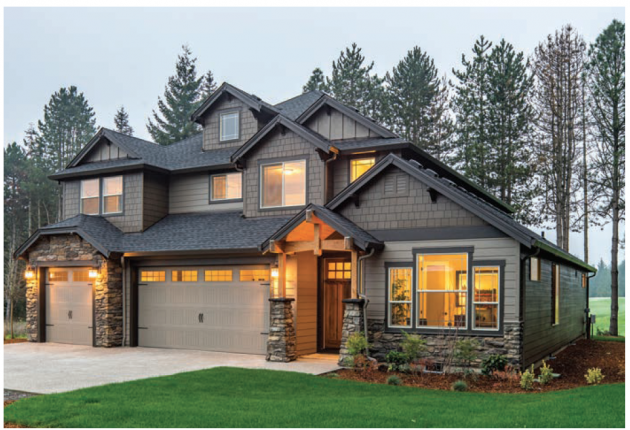Buying a home can be quite tricky and stressful. First of all, it is quite expensive. Last year, the median price for any house type in the US was close to $300,000. Consequently, such a purchase has the potential to either put a huge dent in your savings or put you in debt for many years to come.
Second of all, not every real estate agent is as honest as you probably wish they were. There might be major issues with the house that they are hoping you will not notice. Also, not everyone is knowledgeable enough to realize that something is not right with the air conditioning or with the roof.

Luckily, there is an easy solution to this problem. All you need to do is hire an experienced home inspector! They will examine certain components of the home that you are interested in buying. Once they are done, they will write a detailed report covering their findings.
While you might feel tempted to rely solely on the photos included in the report, it would be best if you were present during the inspection. If the inspector comes across any issues, they will make more sense if you see them for yourself.
Additionally, you might want to read up on what home inspections should cover. That way, you will feel more confident during the inspection and will be able to ask relevant questions. To make it easier for you, we created a list of things that most home inspectors consider to be the most important. Keep on reading if you want to know what they are!
The Garage
It might not be that obvious, but the garage is one of those parts of the house that you should be paying close attention to. Why is that the case? There are many things in there that might cause serious issues later down the road if they are not properly taken care of. In the most severe cases, they might even put the lives of both you and your loved ones at risk.
Firstly, many homeowners do not bother with keeping their garage door in good shape. They do so in spite of the fact that there are many companies out there that specialize in cheap garage door services, such as A1 Garage Repair in Charlotte. While it might not seem like a big deal, it is worth mentioning that several dozen deaths are caused by garage doors each year. Because of that, the inspector should test the garage door for proper opening and closing.
Next, if the water heater is located in the garage, there is a risk that it will explode from gasoline fumes mingling with its flame. In order to minimize that risk, the National Fuel Gas Code requires water heaters to be located at least 18 inches off the ground. Taking this into consideration, you should expect the inspector to check whether that is the case.
The Electrical Panel and Power Outlets
You probably have a general idea of what an electrical panel should look like. It should be neat and organized, and every wire and connection should be marked. It is quite important because a messy electrical panel is a potential shock and fire hazard.
Moreover, your new home should come with functional ground fault circuit interrupters. In the event of a ground-fault, they are designed to shut off the power to protect you from electrocution, electric shock, and burns. Usually, they are installed in areas like a kitchen, a garage, and the outdoors.
All decent home inspectors pay attention to the two things mentioned above. On top of that, their home inspection checklist usually includes testing all the power outlets. It is an easy way to prevent injury or death from accidental electric shocks, and there are many ways of going about it that you can potentially choose from. The safest and the most convenient one of them all requires buying a voltage tester. It is both safe and easy to use.
Walls and Floors
Did you know that leaning walls are an indicator of major foundational and structural defects? It is a serious issue that should not be underestimated. If you are particularly unlucky, such walls can fall in and cause the whole building to collapse. So, if you notice that any of the walls inside of the house are either bowed or leaning, it should be a huge red flag.
When it comes to floors, you might want to check whether they are unlevel. Many older homes have sloping floors, and they are not always a bad thing. Actually, some home buyers find them really appealing. However, it can also mean that the house has a termite problem. If you want to make sure that the property is not infested, it would be best to hire both a home inspector and a pest inspector.
Heating, Ventilation and Air Conditioning (HVAC)
Checking out the HVAC system is crucial. It is especially the case if you are suffering from arthritis, asthma, or high blood pressure. The symptoms of such chronic illnesses can worsen if the air conditioner and the furnace are not working as they should be. To prevent that from happening, the home inspector will recommend any necessary repairs.
The inspector will also take a look at the ducting and check whether your home has sufficient insulation. If something is not right with either of those things, your energy bills will be way higher than they should be.
Plumbing
Every home inspection involves checking whether plumbing is fully functional. Why is it so important? As you might have already guessed, it will prevent you from having to deal with water damage further down the road. Leaking pipes are not a joke, and if left unchecked, they might cause serious structural faults and mold growth.
Consequently, the inspector will look for visible leaks and test the water pressure. If the pipes are very old, they might even recommend a secondary inspection. Once the secondary inspection is over, the inspector will be able to tell you if the pipes need to be replaced and how much it would cost.
In addition to this, you should also determine the location of the main water shutoff valve. In case of an emergency, it will allow you to prevent the water from gushing through the house and causing major flood damage to its interior. While your inspector is guaranteed not to forget about the valve, it would be best if you followed them and committed its location to memory. If you ever need to shut the water off very quickly, you will not have to frantically leaf through the inspection report in order to find it.
Buying a Home? Invest in a Thorough Home Inspection!
All in all, buying a house should always be preceded by a thorough home inspection. In fact, it should be one of your top priorities. A few hundred dollars that you will pay for hiring a home inspector is not much if it prevents you from having to rewire the entire house in a few years.
Bear in mind that the home’s age does not really matter. While older homes might have faulty foundations and use hazardous building materials, problems with plumbing or structural issues can occur even if you are buying newer construction.
Lastly, having a home inspection before you make a purchase can turn out to be extremely beneficial if the house you are interested in is at the edge of your price range. In the end, it might give you the bargaining power to negotiate a lower price and, as a result, allow you to buy the house of your dreams. Once you take that into account, hiring a home inspector should seem like a no-brainer!














